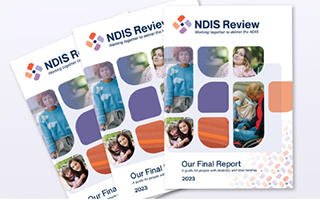
As announced as part of the 2022-23 Budget, the Australian Government is supporting a new voluntary industry funding model for financial counselling. This will deliver more frontline financial counselling services for Australians in financial stress and difficulty. Financial counsellors provide free, independent, and confidential advice on ways to manage debts and make informed choices about money.
The industry funding model recognises the valuable and vital service that financial counsellors provide for their customers. The model is being developed with the partnership and support of the financial counselling sector and several industry sectors, including:
- banking
- finance
- insurance
- telecommunications
- energy
- online gambling sectors
Contributing partners from these industry sectors have agreed to provide initial funding of up to $8 million for one year.
The Government is investing $10.5 million over 4 years from 2021-22. This will support the industry funding model and the financial counselling sector. This includes:
- $1.5 million in seed funding to establish a new, not-for-profit body to collect and distribute industry funding
- $9 million for a range of complementary initiatives.
The complementary initiatives include:
- consultation and evaluation support for the industry funding model
- data capture and capability initiatives, including understanding the demand for services
- further expansion of the pilot for an online appointment booking system, using the National Debt Helpline
- extending a virtual learning program for financial counselling students to complete their placement hours
- investment for expansion of the online chat function on the National Debt Helpline website (previously announced 28 January 2022).
These additional investments will mean more financial counsellors and improved access to financial counselling services for many Australians in financial distress. This may include:
- women experiencing domestic or family violence and/or financial abuse
- people who are unemployed
- Aboriginal and Torres Strait Islanders
- people experiencing gambling related harms.
Industry contributions will be on top of existing Government investments for financial counselling. Currently around $43 million annually for face to-face financial counselling services, the National Debt Helpline, Money Support Hubs, and Problem Gambling Financial Counselling.
Throughout its first 2 years, the Government will evaluate the voluntary industry funding model. This will inform a long-term approach and ensure the viability of the financial counselling sector.
These initiatives deliver on Government commitments in response to the Sylvan Review of financial counselling and support the Government’s economic recovery efforts from the COVID-19 pandemic and natural disasters.




